Doctor Who‘s first episode aired on November 23, 1963. So while for most people, the big 50th anniversary this November will be one day earlier marking the assassination of President John F. Kennedy, I’ll be celebrating the debut of my all-time favorite television show.
With eleven different actors playing the Doctor in a major form on the television show, I’ve decided to take the first eleven months of 2013 to revisit each era of the show in the form of a re-watch. I’ve identified three stories for most months (with the exception of August, which I’ll talk about in greater detail when we get there) to make a concerted effort to view, plus several “bonus rounds” to add in if I have the time and willpower. For each month, I tried to try and select in a way that provided a variety of supporting cast characters, approaches, and the like. We’ll see how well this goes…
January kicks off the great re-watch with William Hartnell, who played the role of the Doctor from 1963-1966. His era was different than any to follow, with a mixture of “historical” (set in Earth’s past with no science-fiction elements aside from the time machine that brought them there) and science-fiction stories (either in Earth’s future, or on other planets). By the time the show ended, it had discovered a new format (modern-day with science-fiction elements), gone through several casts and production teams, and finally inexplicably survived the recasting of the title role. Both Hartnell and his successor Patrick Troughton also have large swathes of episodes missing from the BBC Archives due to a mass purging of older television shows over the years, before the age of home video.
More importantly, the Hartnell era is pretty great. With little to look back on, the show reinvented itself on a regular basis and took chances bigger than any other era has since. In my story selections, I tried to find a mixture of historical and science-fiction, as well as hitting as many of the companions (those who travel with the Doctor in the TARDIS) as I could. I ended up watching 10 stories (or 40 episodes) in all, and while I could blather on about each one of them for some time, just a quick comment on the viewing choices.
The very first story, its initial episode is fantastic; it introduces the Doctor, his granddaughter Susan, and inquisitive teachers Ian and Barbara who get sucked up into the adventure against their will. Unfortunately, episodes 2-4 are set in the caveman era and are a bit problematic. The story itself isn’t that bad in theory (with a bit of an allegory over the arms race using a quest for fire) but the direction/acting involving the cavemen is just teeth-gratingly bad. There’s a reason why many people watch episode 1 and then skip ahead to something else, rather than episodes 2-4 of this opening story.
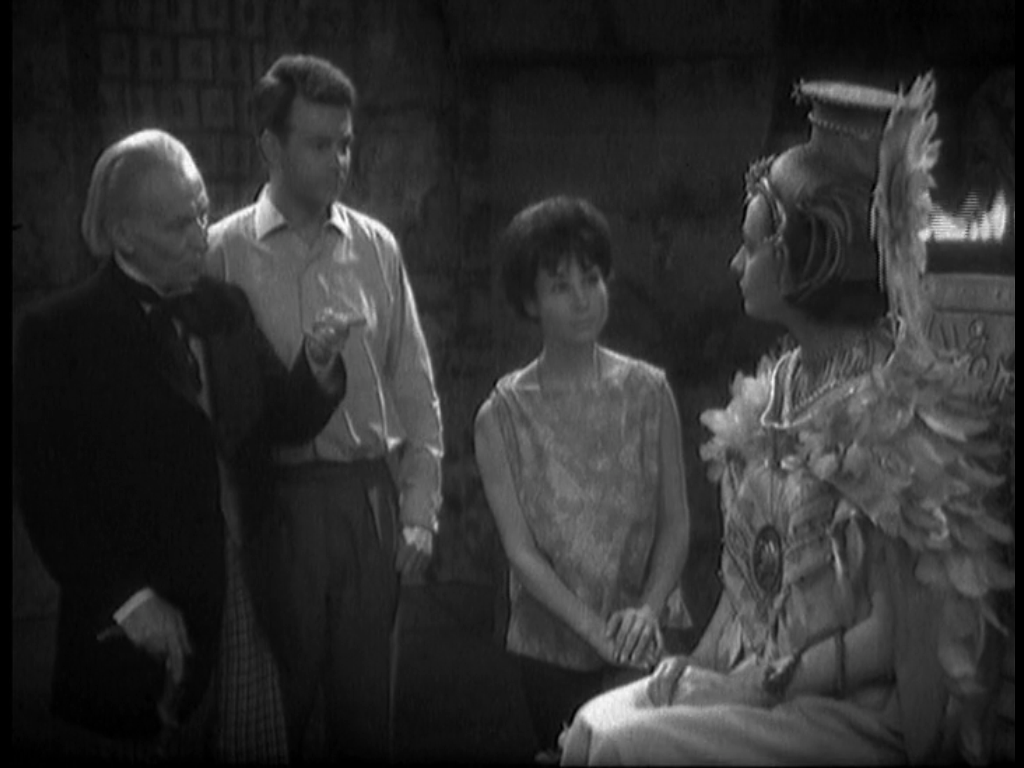
#006: The Aztecs
“The Aztecs” is easily one of the best Hartnell stories, there’s no doubt. The plot is a fun one; landing in 15th century Mexico, schoolteacher Barbara is mistaken for the reincarnation of the high priest Yetaxa and treated as a god, and she decides to try and save the Aztecs by attempting to stop their practice of human sacrifice. It’s a marvelous story, with Barbara struggling to try and fight the tide of history even as the Doctor tries to explain that her attempts are futile. “You can’t rewrite history! Not one line!” is a statement of the Doctor’s that quoted often, and it sums up the story well. “The Aztecs” is the rare script that 50 years later could be reused with no problem whatsoever.
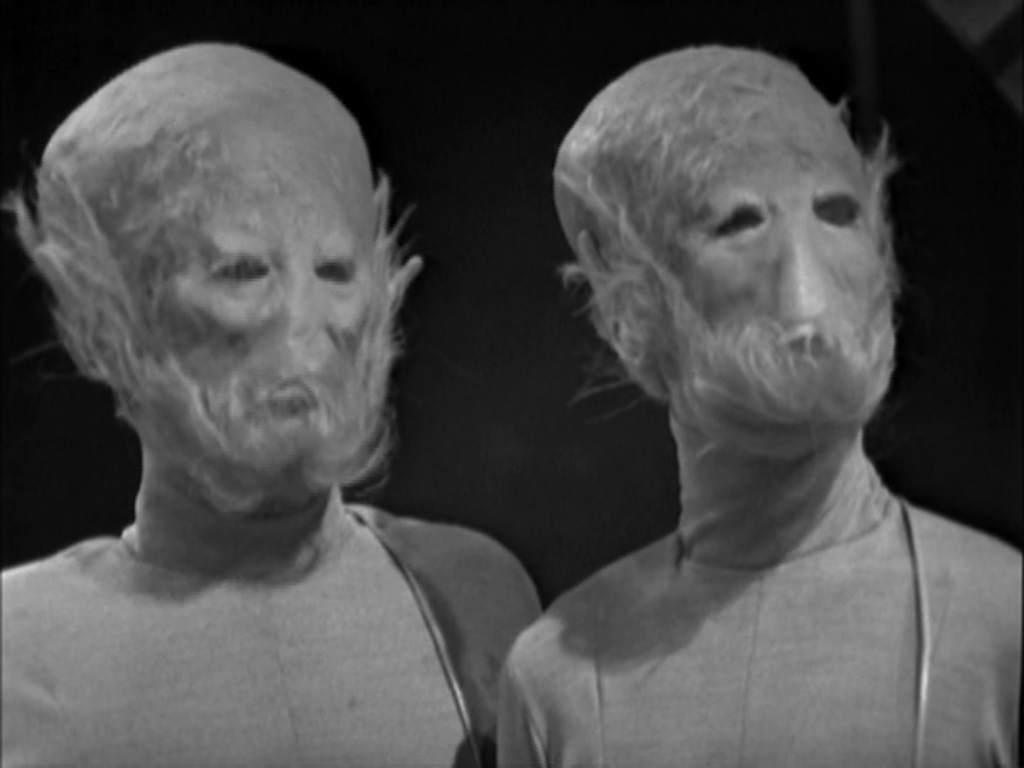
#007: The Sensorites
“The Sensorites” is, unfortunately, the worst story that I watched in January. It wasn’t bad, but rather ill-paced and plotted. There’s some good stuff in it—an alien culture with telepathic powers that doesn’t want to destroy but rather just to keep from being pillaged by humanity—but with six episodes it drags.
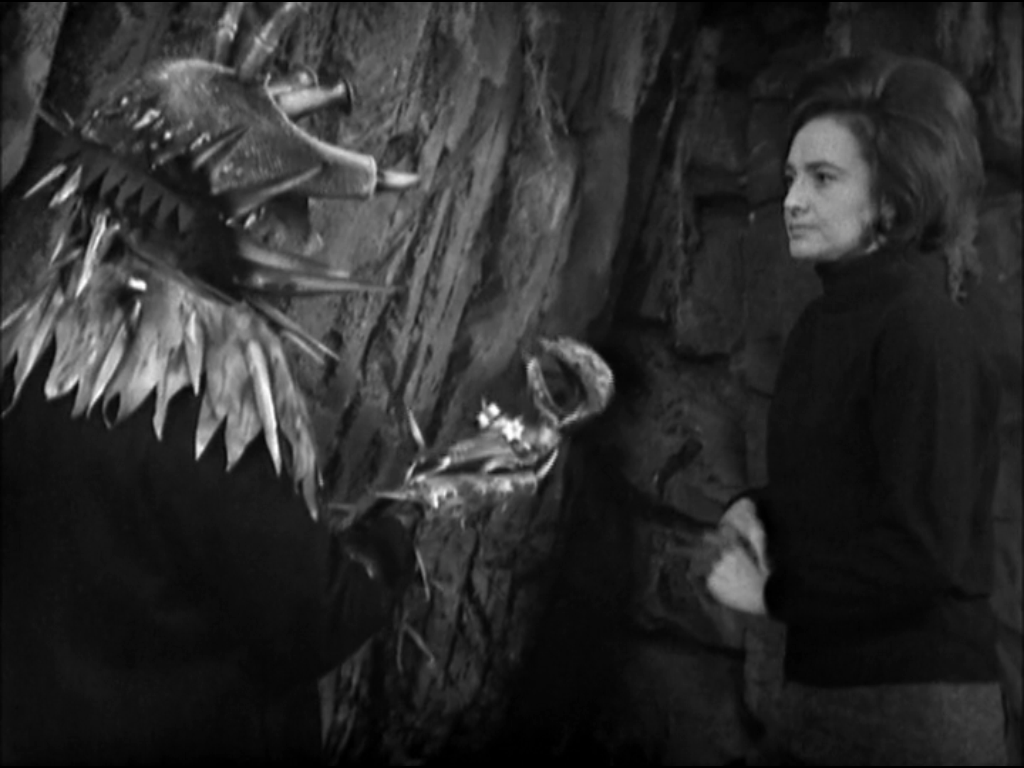
#011: The Rescue
“The Rescue” features the second half of the first cast change of the show; the character of Susan (the Doctor’s granddaughter) had left in the previous story (“The Dalek Invasion of Earth”) and here we get her replacement, Vicki. It’s a short story (only two episodes instead of the standard four) and it is just the right length. The mystery of the monster Koquillon menacing the stranded Vicki and Bennett is easily solved, but it doesn’t need to be too crafty; as a way to bring Vicki on board it works perfectly.
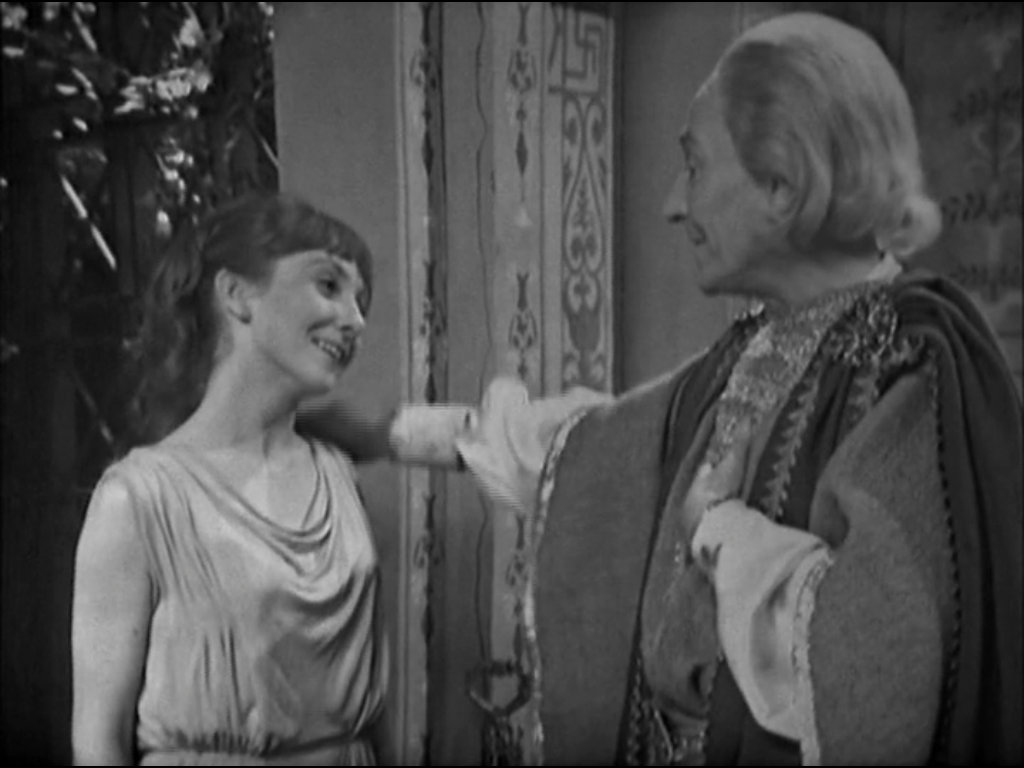
#012: The Romans
“The Romans” is a riot, though. Or half a riot. I love how it’s really two different stories in terms of tone and plot; we get the comedic story of the Doctor and Vicki dealing with Emperor Nero (who knew burning down a city could be funny?) and the darker story of Ian and Barbara being kidnapped and sold into slavery. That said, the balance between the two halves works well, and it’s another story that moves quite quickly.
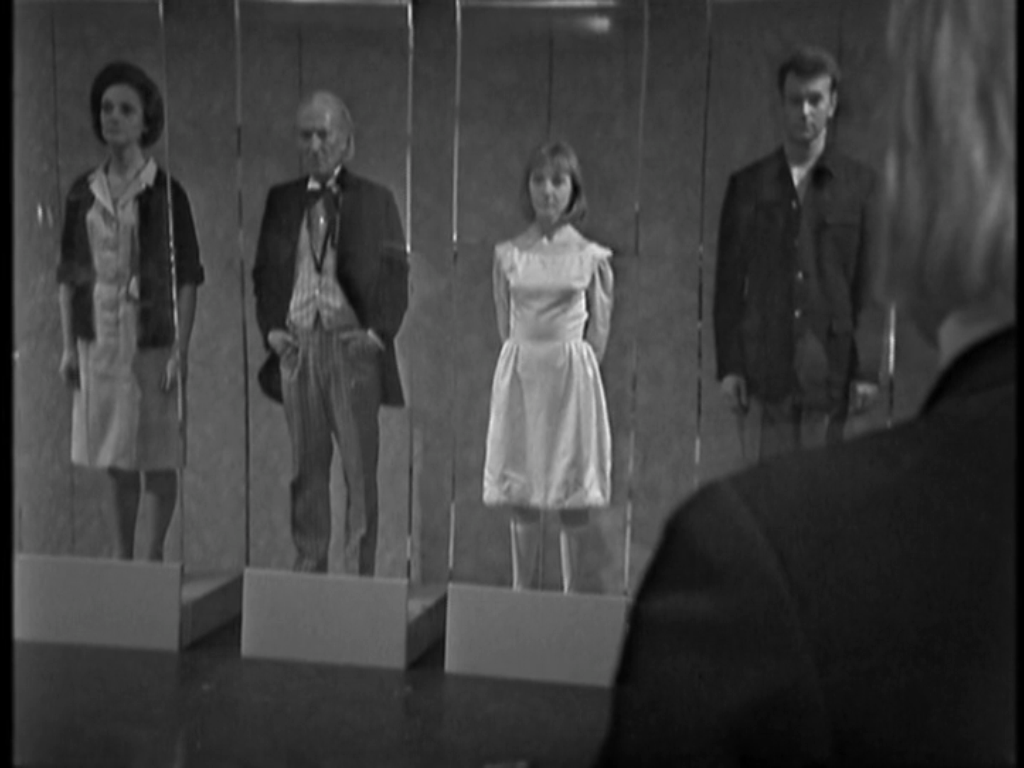
#015: The Space Museum
One of the reasons why I picked “The Space Museum” is that I don’t recall a single thing about it (I last saw it in 1986) but it’s always had a strange reputation where the first episode is loved but episodes 2-4, not so much. That said? I think “fan knowledge” is wrong. Don’t get me wrong, the first episode is very different from the rest as the main cast “jumps a time track” and finds themselves ghosts in a future where they’ve been captured and turned into a frozen museum exhibit. But with episodes 2-4 involving them trying to avert their fate and helping an enslaved planet regain its freedom, it’s still engaging and fun. (Ian’s kicking the butts of two Morok guard followed by Vicki becoming a revolutionary leader was the moment where I realized I was having a blast.) This definitely doesn’t deserve its bad reputation.
The first story where the entire initial supporting cast had been replaced (Ian and Barbara having departed in the previous story “The Chase”), “The Time Meddler” is the first of two Hartnell stories that changes the format of the series (either pure historical stories set in the past, or science-fiction stories set in the future or on other planets) and provide a template of what’s to come. Here, the Doctor, Vicki, and new companion Steven go up against another time traveler who’s attempting to change the course of history during the Viking invasion of 1066. With Doctor Who having not had science-fiction elements in Earth’s past before as a major plot point, their discovering a phonograph and wrist-watch is a big game-changer. And watching the Monk whip out a pair of binoculars is a fun little moment, but doubly so for the 1960s audience who had never had a story quite like this one. Even if it wasn’t historically significant, though, “The Time Meddler” is one of my all-time favorite Hartnell stories; it’s sharp and entertaining from start to finish.
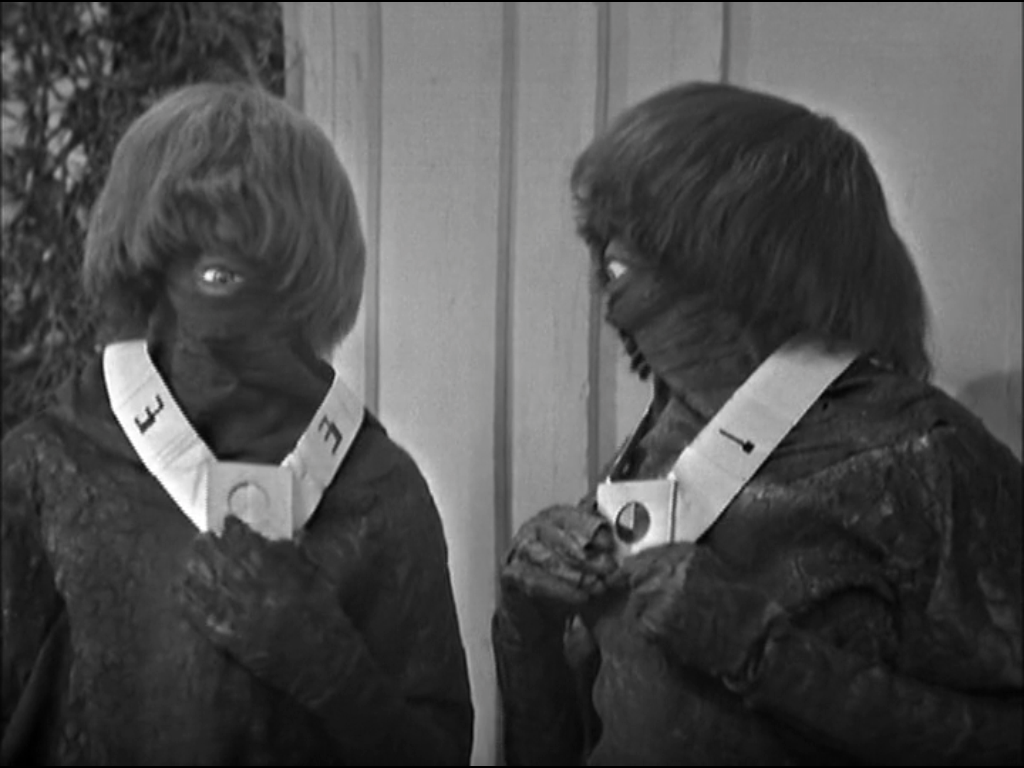
#023: The Ark
Nearing the end of the Hartnell era is “The Ark,” which also has a clever story structure; the first two parts involve the Doctor, Steven, and Dodo visiting and then leaving the far-future space ark, with parts three and four having them return to the ark some 500 years later to discover that they hadn’t quite fixed the problems they thought they’d solved the first time around. It’s a setup that I’m surprised we didn’t get more often in Doctor Who, but more importantly it’s a shockingly well-realized story. A huge cast of extras, some great alien costumes, and even a baby elephant! Even brand-new companion Dodo gets less irritating with each episode, as they clearly try to tone down her deficiencies. The later Hartnell episodes don’t get the attention they deserve, and this is one that should.
A song (“The Ballad of the Last Chance Saloon”) that serves as a narrator! Bad Western outfits! Even worse American accents! Steven singing while Dodo plays the piano! The Doctor using a gun to hold a woman hostage! “The Gunfighters” is legendary in Doctor Who fandom, although there’s one thing that most people don’t seem to remember: it’s supposed to be a comedy. Viewed in that light, “The Gunfighters” is deliberately ridiculous and entertaining. It makes me laugh a lot.
The last complete Hartnell story in the BBC Archives (“The Smugglers” is missing all four episodes, and the final story “The Tenth Planet” is sadly missing its final part, episode 4), “The War Machines” is the other story that, like “The Time Meddler,” changes the format of the series. Unlike almost all of the series up until this point, “The War Machines” is set in modern-day London and deals with a threat to its people. Science-fiction elements are no longer banished to the future or other worlds now, and in doing so it opens the show to all sorts of new possibilities. “The War Machines” itself is a good if not great story; its ambition is its big selling point. The introduction of new “swinging and hip” companions Ben and Polly is unintentionally amusing, if nothing else, even as outgoing companion Dodo is dismissed so suddenly she doesn’t even get a farewell scene. It’s a nice little story, and if the Hartnell era couldn’t end on its actual final story, this is a good a place as any to do so.
Next Month: Patrick Troughton
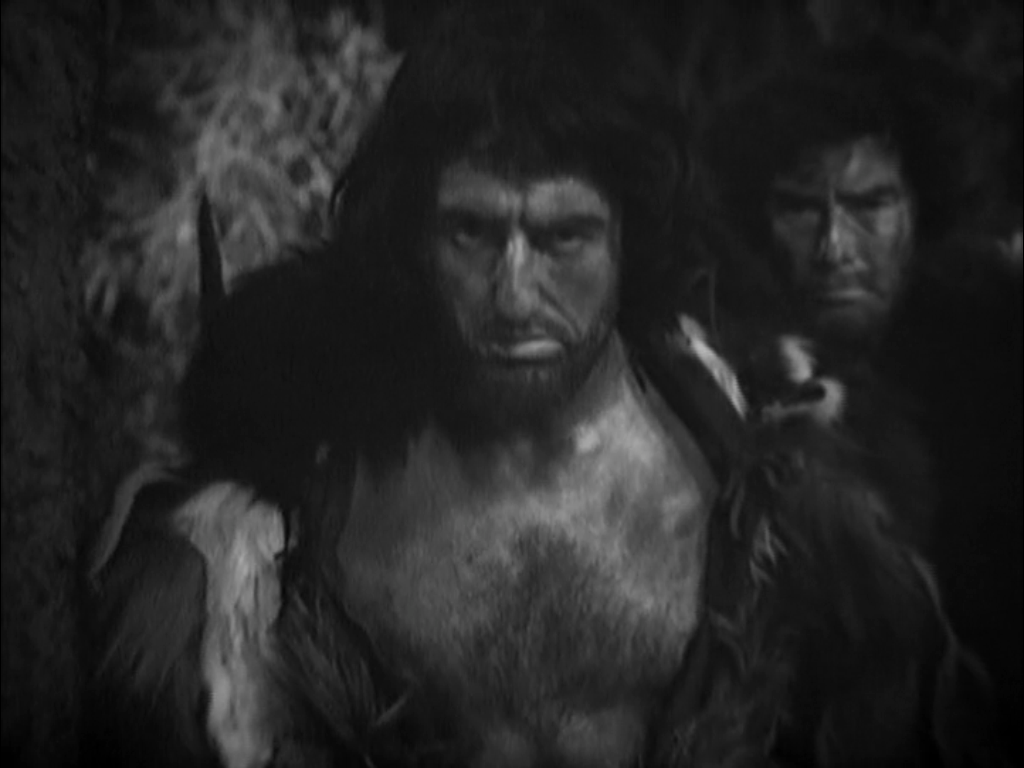
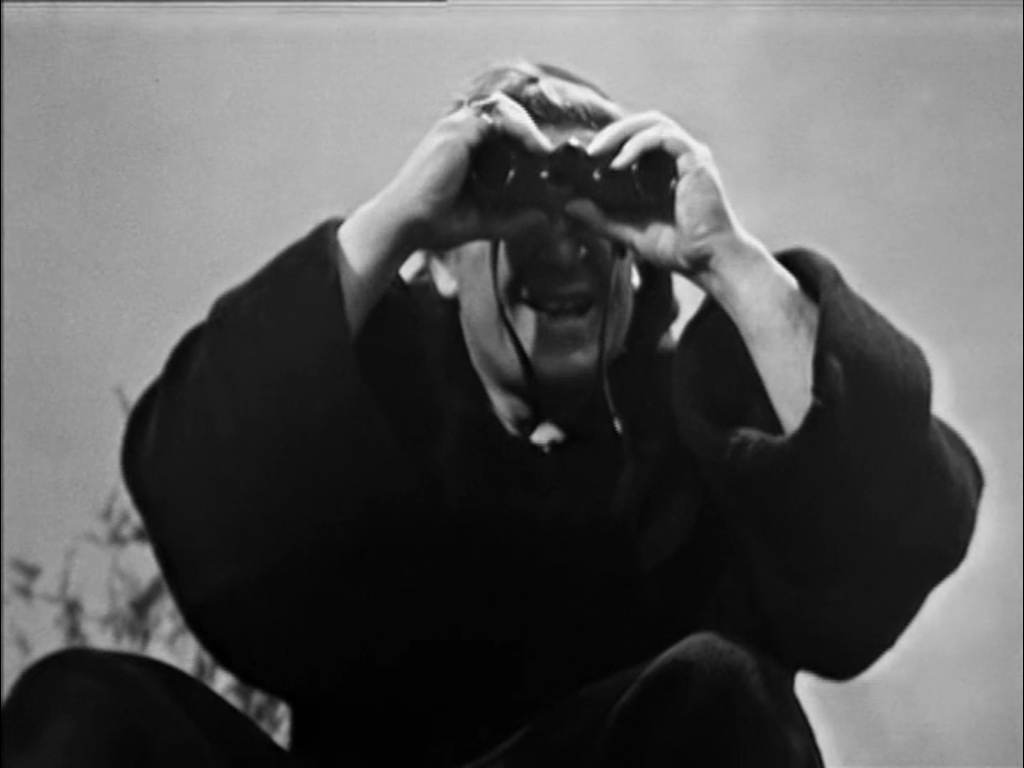
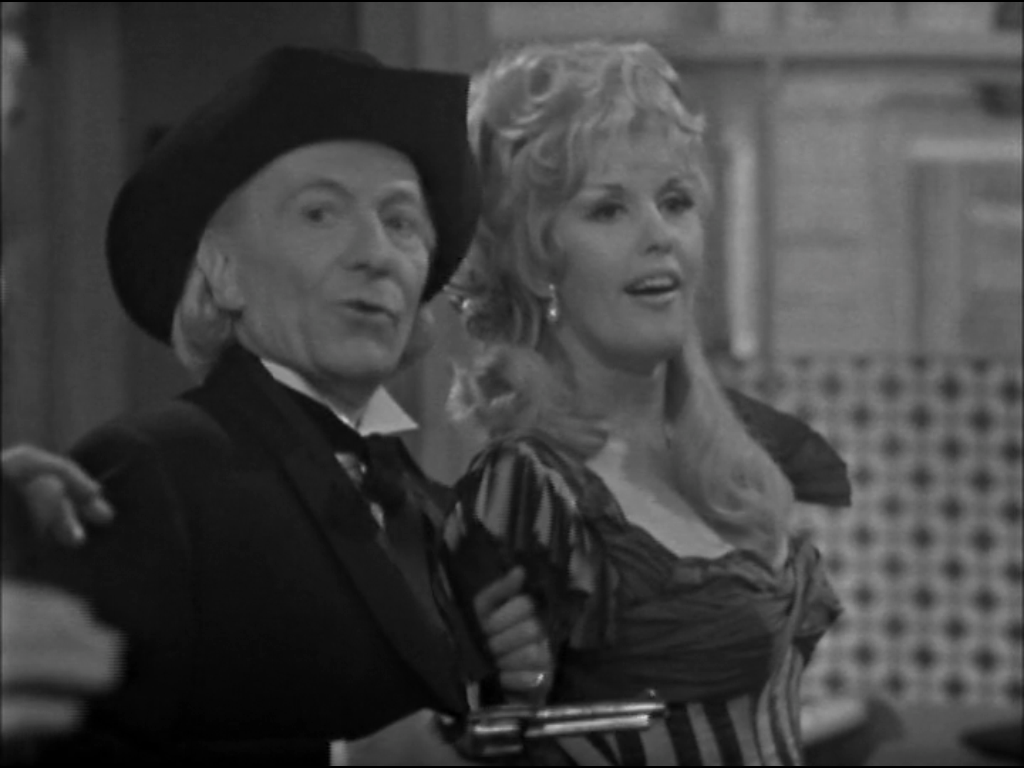
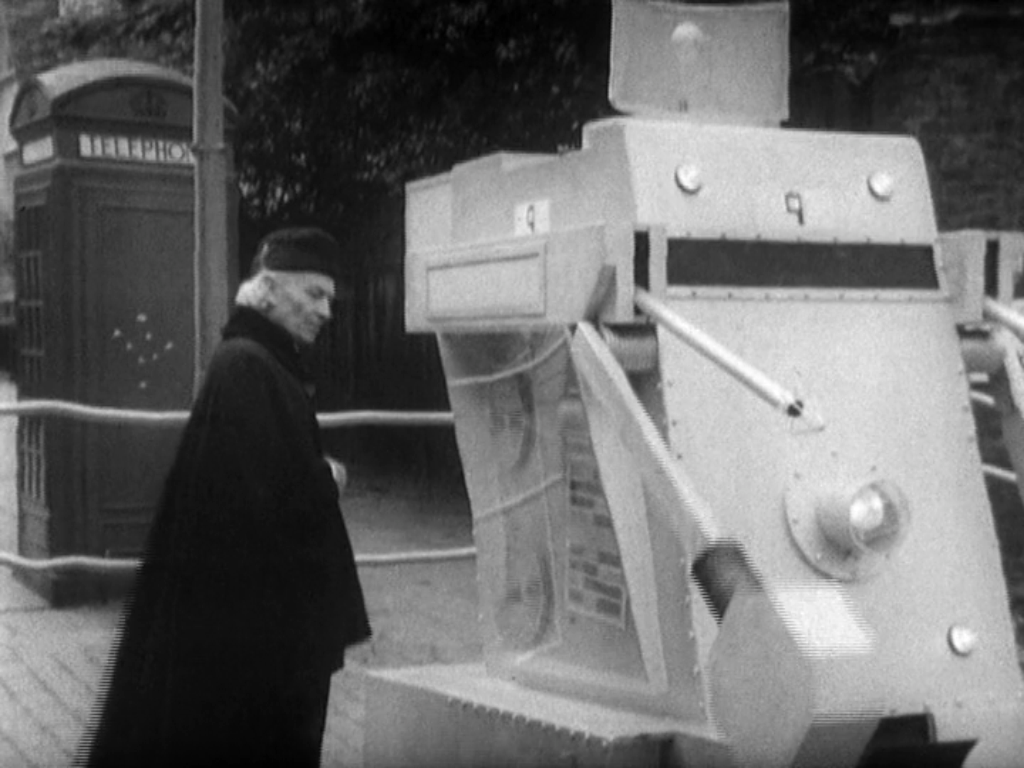
Kevin Cherry liked this on Facebook.
I love the William Hartnell years; the show was still finding its feet and not constrained, and thus free to experiment and take chances.
Matt Chayt liked this on Facebook.
Michael Kent Cornett liked this on Facebook.
Hope you don’t mind if I share this with some Dr. Who fans.
Great! Last June I started watching/llistening to every episode from the beginning in honor of the 50th (I am unsure whether I’ll finish by the end of the anniversary year). It is great to read your reflections. I can’t believe that when I was a kid, people thought The Gunfighters was a turkey. It works quite well on its own terms, as you point out. One story that might be about to experience a re-evaluation is The Reign of Terror…
Michael: Agreed! The amount of variety in the Hartnell era is really staggering and wonderful. The Troughton era that followed is so limited in comparison it’s a little surprising.
Jacqui: Share away! 🙂
Matt: I’m envious! I thought about doing that but the chances of finishing in time in even a year or two would be slim-to-none for me. But I’m quite eager to dive into Reign of Terror soon; I might taking a unscheduled little detour there…
I remember seriously watching Who long ago when PBS started running it from the beginning of the Hartnell years. I have to admit…my interest waned as the mythology became more established and hemmed in the stories more. I kinda preferred the rawboned, fly-by-the-seat-of-your-pants feel of very early Who.
RT @gregmce: Blog Post: 50 Years of Doctor Who: William Hartnell http://t.co/84MCEfzI
Lloyd Jason Phillips liked this on Facebook.
BBC America is apparently planning on showing one story per doctor through the year; last Sunday they did “The Aztecs”…
Arturo: I’m curious to see how much overlap we have! Aztecs was one of the initial three I’d put down for January, as it so happens. And with Troughton, the choices are limited enough that we might get another overlap with their selection and my initial picks. But beyond that… we shall see…
Tim Tucker liked this on Facebook.
As someone who’s watching the new episodes for this first time (I’m at the between seasons 4 and 5 specials), this is very timely. I was thinking of going back and watching everything from the very begininng. So thank you!
Please save all this until the actual 50th anniversary, i.e., my wedding day.
Please save all this until the actual 50th anniversary, i.e., my wedding day.
Jason A. Miller liked this on Facebook.
Jason A. Miller liked this on Facebook.
Tim Tucker liked this on Facebook.
Lloyd Jason Phillips liked this on Facebook.
Matt Chayt liked this on Facebook.
Michael Kent Cornett liked this on Facebook.
Kevin Cherry liked this on Facebook.